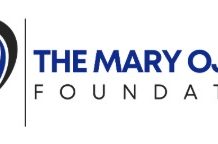Nigeria’s Federal Inland Revenue Service (FIRS) has achieved a record-breaking ₦47.39 trillion in tax collections between October 2023 and September 2025, a 115% performance against target and a 15% overshoot of its revenue goal. Under the leadership of Chairman Zacch Adedeji, appointed in September 2023, the agency has sustained growth across oil and non-oil revenue sources, reflecting the impact of ongoing tax reforms and digital modernisation initiatives. Non-oil revenue accounted for 76% of total collections, underscoring Nigeria’s gradual shift from oil dependency. Non-import VAT and import VAT exceeded targets by 137% and 131%, respectively, while Company Income Tax remained the largest contributor at 32.6% of total receipts. Between January and September 2025 alone, the FIRS collected ₦22.59 trillion, 120% of its target for the period, with ₦5.29 trillion coming from oil taxes (98% of target) and ₦17.3 trillion from non-oil sources (128% of target). The surge was driven by reforms such as the National Single Window, E-Invoicing System, and 2025 tax law amendments, which streamlined compliance and strengthened enforcement. If sustained, total collections could exceed ₦25 trillion by December 2025, offering the government fiscal space for infrastructure spending and debt reduction, though the benefits will depend on actual cash realisation and macroeconomic stability.
Money Market
System liquidity remained buoyant throughout the trading week, opening at ₦3.78 billion on Monday and closing at ₦2.47 trillion. Week-on-week, the Open Buy Back (OBB) remained steady to close at 24.50%, while the Overnight (OVN) rates increased by 2bps to close at 24.86%.
We expect rate to continue to hover around this level.
Treasury Bills Market
The Treasury Bills market opened the week on a quiet note, as investors maintained a cautious stance ahead of the bond auction, with the Oct 23 bill quoted at 15.80%/15.65% and the Apr 7 OMO bill at 20.35%/20.00%. Midweek, activity picked up slightly, driven by interest in the Oct 22 bill, which traded around 15.75%, while mild offers were observed on the April 7 OMO bill quoted at 20.65%/20.20%. As the week progressed, the market traded on a mild but bullish note, with investors cherry-picking attractive maturities such as the September 17 bill at 16.00%/15.70% and the October 22 bill at 15.60%. Toward the end of the week, the market remained quiet as the CBN announced an OMO auction, offering ₦600bn across the 46-day and 60-day tenors. However, participation was weak, with total subscriptions of ₦359.28bn and only ₦1.11bn of the 60-day bill sold at a stop rate of 21.69%. Week-on-week, the average benchmark yield held steady to close at 17.47%.
We expect the CBN to conduct another OMO auction next week, which should guide market sentiment.
FGN Bond Market
The FGN Bonds market opened the week on a quiet note, as investors adopted a cautious stance ahead of the bond auction. The DMO offered ₦260bn across the 2030 and 2032 maturities, with total subscriptions reaching ₦1.06trn, out of which ₦313.79bn was allotted. Stop rates on the 2030 and 2032 maturities declined by 17bps and 35bps to 15.83% and 15.85%, respectively. Following the auction, the market turned active as unmet bids filtered into the secondary market, pushing the 2032s lower from 16.35%/15.95% to 15.80%/15.65% amid renewed buying interest. Midweek, activity was largely calm with trades concentrated around the mid-end of the curve, while yields hovered at similar levels. Toward the end of the week, the market remained subdued with slight upward adjustments, as the 2032s shifted modestly higher to 15.95%/15.75%. Week-on-week, the average benchmark yield increased by 2bps to close at 15.77%.
We expect a quiet start next week, with yields likely to maintain current levels barring any external triggers.
FGN Eurobond Market
The Eurobond market opened the week on a positive note, buoyed by trade optimism after U.S. and Chinese negotiators announced a series of agreements ahead of the highly anticipated meeting between Presidents Donald Trump and Xi Jinping, which fueled buying interest and drove yields lower across the curve. However, sentiment turned mixed midweek as investors adopted a cautious stance ahead of the U.S. Fed’s interest rate decision, with markets pricing in a near-certain 25bps rate cut. The market strengthened again ahead of the announcement, but sentiment quickly reversed after the Fed delivered the expected cut to keep rate at 3.75% – 4.0%, while Chair Powell struck a cautious tone on the prospect of another reduction in December, prompting yield repricing and mild sell-offs. Week-on-Week, the average benchmark yield declined by 14bps to 7.49%.
We look forward to key U.S. data releases, including ISM manufacturing & services, ADP employment numbers, and further updates on the government shutdown, as markets navigate past the 35-day impasse. Additionally, the recent interest of President Trump in Nigeria may weigh negatively on sentiment toward the country’s Eurobond performance.
Currency Market
The value of the Naira to the dollar appreciated by 2.48% to close at ₦1421.73/$ at the Nigerian Foreign Exchange Market Window (NFEM).
Equities Market
The local bourse ended the day with the benchmark NGX All-Share Index (ASI) appreciating by 29bps to close at 154,126.46. Market capitalization also increased, closing at ₦97.48 trillion. Market breadth was negative at 0.89x. Meanwhile, trading activity was mixed on the day, as the volume of shares traded increased by 6% to 525.62 million units, while the total value of shares traded declined by 12% to ₦23.05 billion.
Reflecting the week’s performance, the NGX All-Share Index declined by 0.98%, as gains in ASOSAVINGS (+56.06%), JBERGER (+13.28%) and OANDO (+11.87%) were offset by declines in OMATEK (-21.94%), JOHNHOLT (-16.92%), and CAVERTON (-16.15%).
Overall, the NGX has posted a year-to-date gain of 49.74%. Other notable indices are the NGX Top 30 Index (0.42%; -0.73% 1WK; 48.24% YTD), NGX Banking Index (0.83%; -2.11% 1WK; 35.21% YTD), NGX Oil & Gas Index (0.13%; 0.30% 1WK; 7.40% YTD), and NGX Insurance Index (-1.98%; -3.47% 1WK; 71.47% YTD).






















































